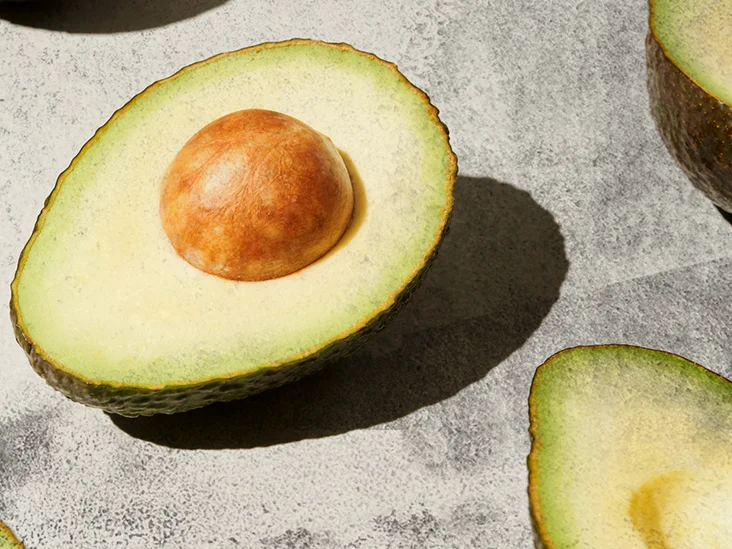Avocados (Persea Americana), sometimes known as “alligator pears,” stand out with their rough outer layer and creamy smooth flesh. It is indigenous to Central America and Mexico. It is one of the highest-fat plant foods, and because of avocado nutrition facts, they are a mainstay of numerous healthy meal regimens. Avocados have more fat (the suitable type) than carbohydrates and are an excellent source of fiber. Avocados usually have a pear or spherical shape and come in the color of either light green or black (when fully ripe).
Avocado Nutrition Facts
A half avocado (100g) contains 160 calories, carbs .5 grams, protein 2 grams, and fat 14.7 grams. This fruit is an excellent source of magnesium, potassium, and vitamins C, E, and K. Here are the facts in detail:
Carbs
A whole avocado has 13.4 grams of fiber and around 17 grams of carbs. An avocado contains a small quantity of sugar (less than one gram), and almost all of the carbs in the fruit are from starch. Avocado is a food that has a low glycemic index, with values ranging from zero to one.
Fats
A whole avocado has about 30 grams of fat, including 3.6 grams of polyunsaturated fat, 4.2 grams of saturated fat, and about 20 grams of monounsaturated fat. Thus, while fat contributes to most of the calories in an avocado, these calories come from the healthier monounsaturated fat. Plant-based monounsaturated fatty acids, or MUFAs, can help in reducing LDL or “bad” cholesterol.
Protein
Half an avocado has around 2 grams of protein. Even if it doesn’t contain a lot of protein, it can still help in achieving the ideal protein intake by adding it to the shakes.
Vitamins and Minerals
Avocados are high in vitamins K, E, and C. Niacin, pantothenic acid, riboflavin, folate, and riboflavin are all found in avocados. Avocados contain a number of minerals, including potassium, copper, manganese, magnesium, and magnesium.
Calories
The calories in an avocado vary according to its size. A larger (200-gram) avocado contains 322 calories, according to the USDA Nutrient Database.
Health Benefits of Avocado
The avocado is regarded as a superfood by some nutritionists. As per the avocado nutrition facts, this fruit is an excellent source of fiber, which has health benefits like combating lousy cholesterol and controlling blood sugar. Lutein and zeaxanthin are found in avocados. They shield the eyes from free radical damage and help the prevention of UV radiation damage. Avocados include antibacterial substances that can help the body protect itself against infections caused by Streptococcus Agalactiae and Staphylococcus Aureus. It promotes digestion and acts as a natural detoxifier by improving bowel movement. Antibacterial properties can be found in avocado oil.
Other potential health benefits are:
- Potentially Lessen Cardiovascular Disease Risk
- Seed Extract May Help in Cancer Prevention
- May Reduce the Risk of Metabolic Syndrome
- May Encourage Weight Loss
Conclusion
Whether for oral delight or health purposes, avocado nutrition facts make this fruit an ideal inclusion in vegan and vegetarian diets. A person can include avocados in their diet in many ways. Firmer avocados are ideal for slicing and adding to a salad or sandwich, whereas soft avocados, for instance, create fantastic guacamole or can be added to smoothies. Avocados’ slightly earthy yet neutral flavor enhances the richness of sauces, baked products, salads, and grain foods.






